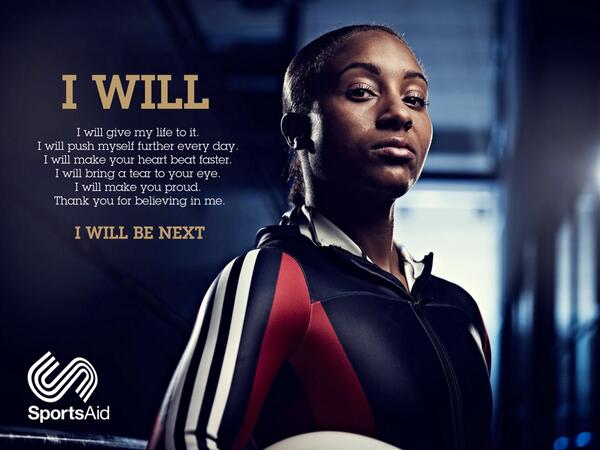The British Skeleton Team – Sliding to Victory
How would you like to slide down a very steep and winding track of ice on something very similar to a tea tray at around 140km per hour? Yes, no, maybe. Well, there are people out there who can and do want to. And what’s more, they’re really rather good at it.
Alongside Bobsleigh and Luge, the Skeleton is one of three sliding sports that take place on artificially refrigerated ice tracks. It’s a really white knuckle experience as each skeleton athlete pushes their sled one handed away from the start before lying down with their face first as they travel the track, using their shoulders, knees and toes for steering.
Golden Girls – The New Generation of Role Models
DillyTante is inspired and amazed by our Golden Girls – The athletes of Olympic 2012
I’ve had a strong dislike of sport for a few years now. Oh, when I was young I made a good pretence of liking football. I supported Chelsea from a young age, and when I was a teenager I used to buy Chelsea Magazine. It helped keep me knowledgeable, with a view to keeping up with the boys’ conversations, specifically one who I fancied liked crazy who also supported Chelsea. But now I’m in my 30s, two kids, and so much going on I just don’t have the time or energy to maintain an interest simply for conversational purposes. In fact my faux interest has turned full circle to active dislike.
I’ve fully embraced my distaste for sport, and can quite often be heard muttering about “inflated pay and under performance”, “bad behaviour of sportsmen” and “breeding ground for aggressive behaviour”. Until recently I thought sport was frivolous, pointless, and a waste of money (I know, this from a girl who gets her kicks from yarn bombing.)
The hazy days of London2012 mania, have been a revelation to me: it’s not sport I hate, it’s football.
I watched gripped as Heather Stanning and Helen Glover breezed to the finish line in their boat to grab Team GB’s first gold medal. I could barely suppress the tears watching Jessica Ennis giving the performance of her life, clinching the gold for the women’s heptathlon.
I’ve quickly gained skills as a judge for events like the Synchronised Diving, and Artistic Gymnastics, giving the TV the benefit of my wisdom, picked up from the BBC commentators. “Ooh, very little splash, that’ll be a good score”. “Look that that, totally out of synch.”
I’ve marvelled as the country has united in it’s support for TeamGB, and basked in the glow of success, if not the sun. People on Twitter are reporting feelings of joy and humility simply from watching these people compete. Joy and humility are the emotions that I associate with watching major football competitions.
Jessica Ennis: young, attractive, successful; the media made her the poster girl for London2012, and under that immense pressure she delivered. It’s too early for me to count properly, but my rough estimates are that about third of our medal haul so far has come from women. How refreshing for our daughters to see these women as role models. People like Katie Price, Cheryl Cole and anyone from the cast of TOWIE (I couldn’t name a single one) are revered for their looks, what they wear and their diva-like behaviour.
Jessica, Victoria Pendalton and Rebecca Adlington are also being lauded for the bodies, but for for what their bodies and do when combined with the drive, the dedication and the grace under pressure from their minds. These are people who have worked single mindedly for years in the pursuit of one goal. They have respected their bodies, and honed their minds to get the maximum from them. And on winning they have thanks everyone from the crowd to their PE teachers. They’ve hugged and congratulated opposing teams. They’ve beamed in pride and shed tears of joy atop the podium.
Here’s what they haven’t done:
Scissor kicked a member of the crowd
Sworn at the referee, team mates or any of the spectators
Deliberately sabotaged an opposing team by kicking, hitting or elbowing them
Got blind drunk and made a spectacle of themselves during a major competition
Refused to shake hands with an opposing team member
Been accused of racist abuse of opposing team members
 Do you know what Heather Stanning does when she is not training to be an Olympic Rower? She’s a Captain in the Royal Artillery. Jessica Ennis is a Psychology graduate, and Victoria Pendleton is also a graduate. These are women with brains and brawn, and a drive to succeed.
Do you know what Heather Stanning does when she is not training to be an Olympic Rower? She’s a Captain in the Royal Artillery. Jessica Ennis is a Psychology graduate, and Victoria Pendleton is also a graduate. These are women with brains and brawn, and a drive to succeed.
Now let’s talk money. Team GB athletes are funded mainly by the National Lottery World Class Performance Programme. They get this money in two ways:firstly through their Performance Programme, which pays for coaches, sports psychologists, acclimatisation and other training needs. This is worth around 55k for “Podium Level” athletes. They can also apply for a personal award, which covers their personal living and sporting costs. This ranges from 13k to 28k. Obviously being a world class athlete costs more than that so they have to rely on other sources such as sponsorship, with many athletes having other jobs, to earn money, but also as a stepping stone to life after relatively short careers. There is an earnings cap set at £65,163 above which the athlete’s award will start to be deducted, meaning that once an athlete starts pulling in the sponsorship money, their contribution from the WCPP is reduced.
Estimates vary, but Chelsea footballer John Terry reportedly earns about £150,000 a week. Yeah, look at those noughts.
Maybe now we can get over our eternal disappointment at the performance of our footballers. Isn’t it time that football and footballers stopped dominating sporting coverage. At last we have some real role models gracing our screens and our papers.
Real people, real faces, real achievements. And it’s not just me who thinks this; my Twitter timeline was awash with similar sentiments. Most of this in the control of the media, but we can control what we chose to consume, and we can tell them what we want.
We want to see more of these hard working and committed young people. We want to see more women in sport. We want to see more interesting sports than a bunch of men kicking around a ball for 90 dull minutes before the penalty shoot out which we will inevitably lose (don’t they train for these things?). The BBC must also be praised for its excellent, comprehensive coverage of the Olympics (bar a few inane presenters, Gary Linekar I’m looking at you). But if we have another all male short list for BBC Sports Personality of the Year I’m cancelling my licence fee.
Personally I think Ennis should win it, fortunately it doesn’t matter, because she has already won the biggest prize of her career.
This article was originally posted on DillyTante’s blog




